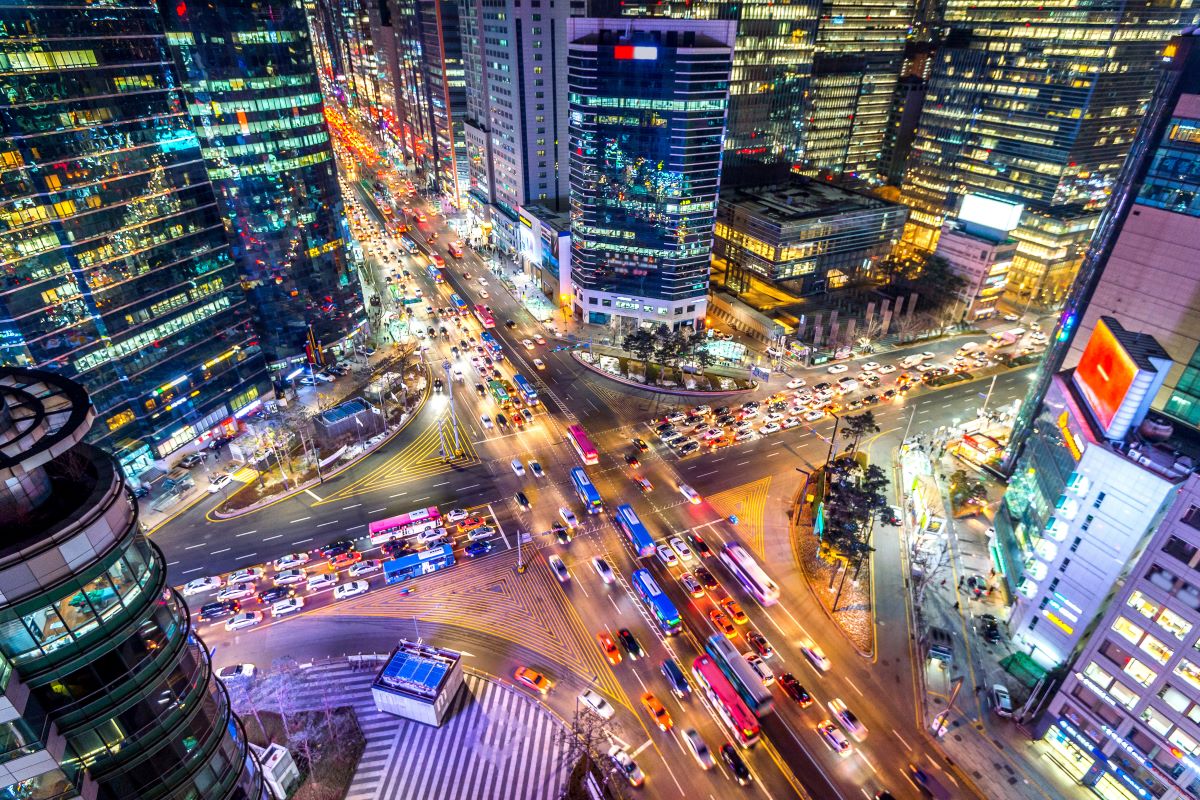Anticipating higher inflation, South Korea’s Finance Ministry has cut the country’s economic growth forecast to 2.6% for 2022 from the previous estimate of 2.7%. South Korea’s inflation is also expected to rise by 4.7% in 2022, higher than the government’s previous estimate of 4.5%.
Global economies are facing an economic slowdown due to rising consumer prices, while the World Bank has warned of the risk of stagflation. Several countries have cut GDP growth expectations in the past few months, including G20 countries, the US, Eurozone economies, Japan, China, and India.
South Korea cut its economic growth forecast after Fitch Ratings lowered the country’s 2022 growth outlook to 2.4% on June 15. Fitch said it has cut the GDP growth figures by 0.3% as it sees slower global growth and China’s economic slowdown posing ‘external challenges’ to South Korea’s economy.
South Korea’s inflation and slowing growth
South Korea’s slide started with in April when the country recorded its first current account deficit due to higher energy and commodity costs. The country’s export-reliant economy is on shaky grounds as shipments have fallen in recent weeks.
The US Federal Reserve raising its key interest rates by 0.75% on higher inflation figures reported last week will likely put even more pressure on the Bank of Korea. The central bank’s governor Rhee Chang-yong has signalled another interest rate hike next month to control price pressures. Bank of Korea had previously said that rising South Korean inflation was a bigger risk than slowing growth.
“Our economy and markets are being shaken as we are thrown into a complex crisis amid fears of stagflation,” President Yoon Suk-yeol said during a speech on June 16.
In May, South Korea’s consumer prices rose 5.4%, the fastest pace since 2008. The country’s central bank expects it to remain above 5% through June as well.
Meanwhile, the Finance Ministry in its statement said although the economy will expand slower than previously expected the employment rate in the country will climb by 600,000 in 2022, double the previous estimate of 280,000. Earlier this week, South Korea reported a jobless rate of 2.8% in May, higher than 2.7% in April.
The country was previously expecting a current account surplus of $80 bn, but the finance ministry now expects a surplus of $45 bn, blaming the sharp jump in oil prices. However, this reflects the long-term perspective, South Korea also faces supply chain issues in the short term.
Supply chain woes and new plans
Samsung Electronics, the world’s biggest smartphone maker and Samsung Group’s flagship unit, June 16 said it has stopped new procurement orders and has asked suppliers to delay or reduce the shipment of components citing swelling inventories and global inflation.
Samsung’s move comes as a surprise as the company was previously expecting healthy shipments for the rest of the year, but now reflects the pessimistic economic outlook it has owing to rising inflation.
Separately, South Korean supply chains were disrupted over the past week as truckers in the country went on a strike, costing the country $1.2 bn in lost production and unfulfilled deliveries. The truckers had gone on an eight-day strike that ended on June 14 after the government agreed to minimum pay guarantees.
The country’s top steelmaker Posco had to curb its output owing to the trucker strike, which then affected the petrochemicals sector. Hyundai Motor, petrochemicals firm Hanwha Corp and LG Chem were among the worst affected.
To combat inflationary pressures, the government has planned to lower the maximum corporate tax rate to 22%. President Yoon in his election campaign had highlighted a ‘private-sector-led economy’, and it is likely that he will implement policies for corporates to with higher minimum wages and rising borrowing costs.
Seoul has various plans to shore up its economy, and the government recently announced that the USD/KRW spot market will now trade for 17 hours daily, in a bid to attract foreign money. Currently only locally licensed forex dealers are allowed in the market, but this is set to change soon as South Korea will now allow foreign forex dealers to participate.
As South Korea reels under high inflation and rising costs, the country’s top economic and finance officials, the finance minister and central bank chief, and the presidential aide on economic affairs met on June 16 to discuss the economy and financial market situation.


 Australia
Australia China
China India
India Indonesia
Indonesia Japan
Japan Malaysia
Malaysia Philippines
Philippines Singapore
Singapore South Korea
South Korea Taiwan
Taiwan Thailand
Thailand Vietnam
Vietnam







